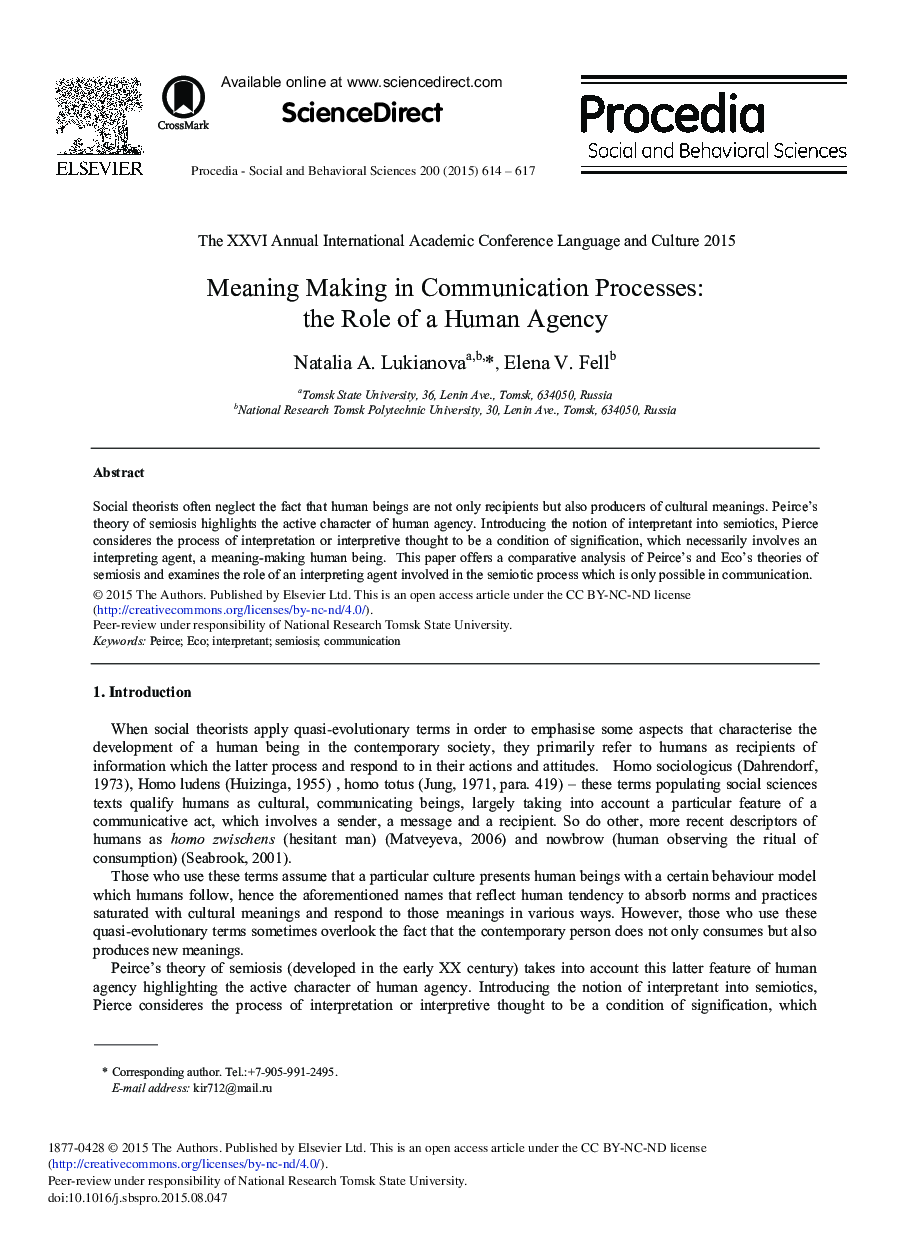| Article ID | Journal | Published Year | Pages | File Type |
|---|---|---|---|---|
| 1110619 | Procedia - Social and Behavioral Sciences | 2015 | 4 Pages |
Abstract
Social theorists often neglect the fact that human beings are not only recipients but also producers of cultural meanings. Peirce's theory of semiosis highlights the active character of human agency. Introducing the notion of interpretant into semiotics, Pierce consideres the process of interpretation or interpretive thought to be a condition of signification, which necessarily involves an interpreting agent, a meaning-making human being. This paper offers a comparative analysis of Peirce's and Eco's theories of semiosis and examines the role of an interpreting agent involved in the semiotic process which is only possible in communication.
Related Topics
Social Sciences and Humanities
Arts and Humanities
Arts and Humanities (General)
